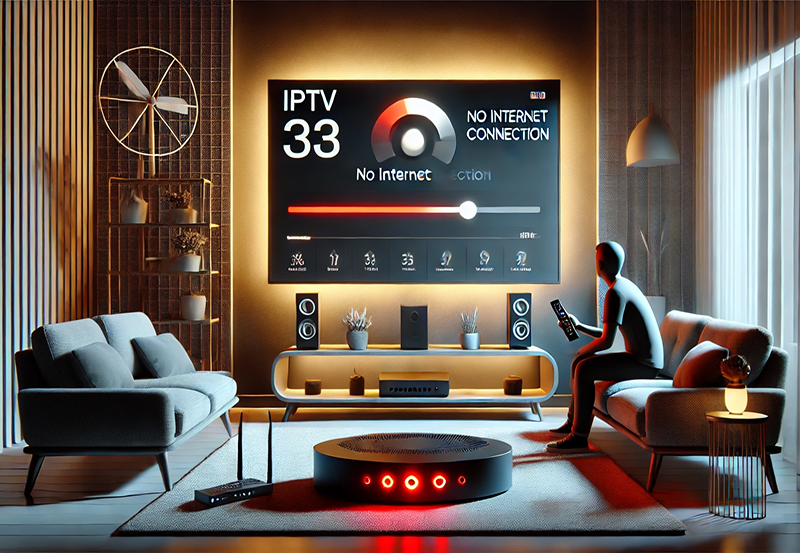The rise of IPTV has transformed how we consume entertainment, offering unprecedented access to live TV, on-demand content, and exclusive programming. However, with this shift comes the growing challenge of protecting user data and preventing unauthorized access. As cyber threats evolve, so does the need for innovative solutions to enhance privacy and security in IPTV services. Blockchain technology, with its decentralized and secure framework, has emerged as a powerful tool for addressing these concerns, reshaping the IPTV landscape.
Buy 1 Year IPTV and Enjoy Unlimited Content
At its essence, blockchain is a distributed ledger technology that operates across a network of nodes, ensuring transparency and immutability. For IPTV providers, this decentralization means there’s no single point of failure, reducing the risks of data breaches or system outages. Unlike traditional systems that rely on centralized servers vulnerable to hacking, blockchain distributes data across multiple nodes, making it significantly harder for malicious actors to compromise.
One of the key ways blockchain enhances IPTV privacy is through its secure identity management capabilities. Blockchain allows users to maintain decentralized identities, ensuring personal data is not stored on a central server where it could be exposed. This means users can access IPTV services without revealing sensitive information, creating a safer environment for online activity. For providers, it reduces the risk of storing and managing large volumes of user data, which are prime targets for hackers.
Blockchain also transforms how payments are handled in the IPTV ecosystem. With blockchain-based transactions, such as those using cryptocurrencies, users can make secure and anonymous payments. These transactions are encrypted and recorded on the blockchain, ensuring that they are tamper-proof and verifiable. This protects users from fraud and enhances trust in the payment process. Additionally, the transparency of blockchain-based transactions means both users and providers can trace payments, ensuring accountability on both sides.The Smart Future: How IoT and IPTV Are Revolutionizing Home Entertainment
Another significant benefit of blockchain for IPTV services is its ability to combat piracy. Piracy is a pervasive issue in the IPTV industry, costing providers billions of dollars annually. Blockchain-enabled Digital Rights Management (DRM) systems can assign unique digital identifiers to every piece of content, allowing providers to track and verify its distribution. This ensures that only authorized users can access the content, protecting intellectual property and ensuring creators and providers are fairly compensated.
Smart contracts, a unique feature of blockchain, further enhance IPTV security and efficiency. These self-executing contracts automate processes based on predefined conditions, eliminating the need for intermediaries. For example, a smart contract can manage subscription services, automatically activating access upon payment and deactivating it when the subscription period ends. This reduces the chances of fraud and ensures a seamless user experience.
Blockchain’s transparency also plays a pivotal role in building trust between IPTV providers and users. All transactions and actions recorded on the blockchain are immutable, meaning they cannot be altered or deleted. This ensures that providers adhere to regulatory requirements and operate with integrity. For users, it guarantees that their data is handled securely and ethically.
Decentralized storage is another area where blockchain shines. IPTV services traditionally rely on centralized servers to store user data and content, which are vulnerable to cyberattacks and system failures. Blockchain’s decentralized approach stores data across multiple nodes, ensuring greater reliability and security. This resilience is critical for maintaining uninterrupted streaming and safeguarding user data from unauthorized access.
Moreover, blockchain introduces innovative monetization opportunities for IPTV services. Through microtransactions enabled by cryptocurrencies, users can pay for specific content or services without committing to full subscriptions. This model benefits users by offering greater flexibility and affordability while ensuring that providers and content creators receive fair compensation.
As IPTV continues to grow, so does the need for robust privacy and security measures. Blockchain’s ability to decentralize, secure, and authenticate data makes it an ideal solution for addressing the challenges of the modern IPTV landscape. By leveraging blockchain technology, IPTV providers can not only protect their platforms from cyber threats but also build a more transparent, secure, and user-friendly ecosystem.
Troubleshooting Common IPTV Issues





